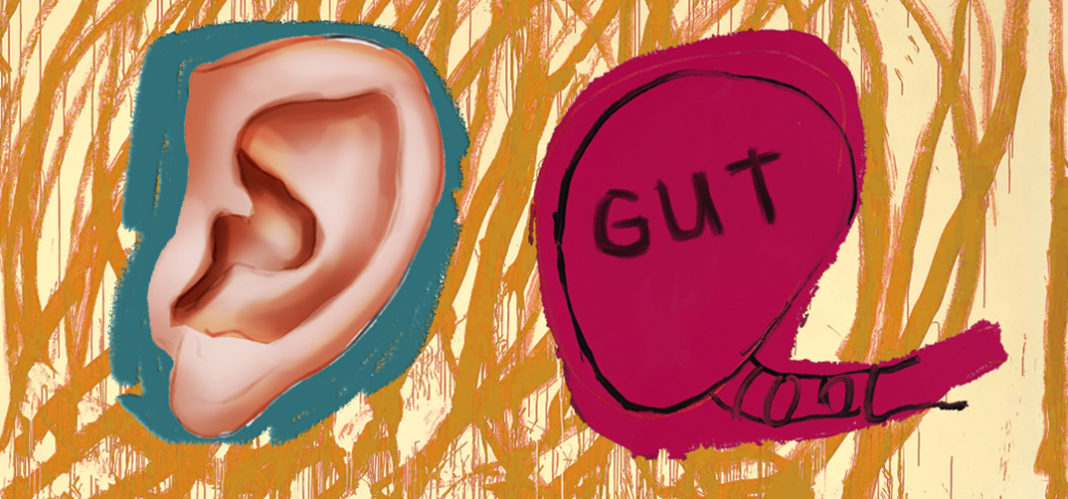Listening to your gut when you’re anxious is like going to the supermarket on an empty stomach. Your judgment is clouded so you end up buying stuff you don’t need. The last time I made that mistake, extra-large bags of potato chips, wheels of cheese, and sugar-packed cereals I had sworn off for life made their way into my shopping cart. Being hungry impairs the ability to make healthy choices.
Similarly, anxiety can impair the ability to make intuitive or “gut” decisions. While there is no agreed-upon definition in psychology, intuition is generally thought of as resulting from a fast, unconscious, and automatic process that leads to knowing something without knowing how you actually know it. Intuition can be a valuable tool, especially if you have expertise in the situation at hand. For example, intuitive decision-making athletes make faster and better decisions than their more analytic counterparts. Related research shows that intuition is enhanced in people when they are in a good mood. But when you are anxious, the opposite is true.
There are a number of possible reasons why an anxious state of mind interferes with intuition. A lack of self-confidence, a fear of failure, a pessimistic outlook, a narrow perspective, and a tendency to pay attention to irrelevant stimuli contribute to why it is hard to see the forest from the trees when you are filled with fear or uncertainty.
Intuition can be an excellent guide but only in the right context and when you are thinking clearly. As one researcher puts it:
“The primary takeaway is: intuition is like nitroglycerine — it is best used only in certain circumstances.”
This article originally appeared in the September 2018 issue of Marie Claire.
I wish you all the best,
Dr. Samantha Boardman






